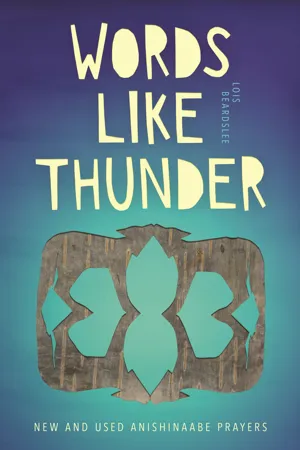Somewhere outside of Minneapolis,
Where a soft prairie hill was scooped away to level a parking lot
Back behind the casino . . .
There is a long sandy ravine
That curls its way downward to the river that goes on forever.
Under desiccated roots of small, stranded jack pines,
West Wind and North Wind lean against opposing sandbanks.
Their knees are bent,
And their wide winter work boots rest flat against frozen clay.
The old blue enamel coffeepot is propped up over coals
By three glacial stones
As smooth as a loving woman’s lips,
Each balanced in perfect harmony with the tilt of prairie demands
Upon curving soils and incessant winds.
West Wind suggests a smoke,
But North Wind says, no, better save the red willows
For making dream catchers to sell at pow wows,
. . . For making gas money to their next destination,
Where their extended families might be in need of a satisfying breeze.
West Wind and North Wind are playing three-handed pinochle with a dummy hand,
Because the Anishinaabeg have been scattered about
So far in every direction,
Some even as far south as Oklahoma, says North Wind.
West Wind says he heard that the Kickapoo got to Oklahoma,
Then decided to keep going just across the border to Mexico,
Where brown Indian men and women fell in love with them
And wrapped their arms around them.
Now they build their wigwams out of red cedar
Instead of elm and birch barks;
They eat fatty seeds from cholla and rich pine nuts
Instead of beechnuts and hazelnuts from wide water basins.
The Kickapoo, who named themselves after lake-effect snows
At the southernmost tip of Lake Michigan’s watershed,
Now dance in circles of desert sands.
They sing in a soft blend of Anishinaabemowin and Spanish, he says.
And the two old men snigger,
As they have never learned the European tongues that sound to them jumbled
Like waves tumbling boulders of ice
Into pebbles that melt away
Like change in old men’s pockets.
North Wind has pneumonia, has had it for months.
His laughter morphs
Into wild fits and short gasps as he croups up sputum,
Turns his head toward Indiana steel mills,
Where prairies flatten into the southern basins of Great Lakes and waterways.
He’d been gifted the illness by a child in Traverse City
Who had stuffed a finger inside her congested nostril,
Then handed the old man a store-bought cookie
In lieu of opportunity.
One time, North Wind ambled out into a broad parking lot where buffalo once grazed above twin bays in the wake of wildfires.
There, he sought out others who had been afflicted,
Asking for their remedies, like spare change
On the salty paved floors between grocery carts and rusted pickup trucks.
He volunteered for recess duty at an elementary school
Where children’s eyes weeped,
And their infected windpipes constricted to make them howl
Like coyotes filling a niche
Where wolf cubs once slid behind tall pines.
He peeked into a teacher’s lounge
And smiled at a young Scandinavian,
Asked if she knew how to cure
Lack of access to fresh, cool air.
She told him to use his paid sick leave
To visit a physician
Who would cure him with expensive herbal teas from distant laboratories
And textbooks about tolerating diversity.
But the old man only had high-deductible health insurance
That paid for nothing.
Healers had always prayed to him . . .
To deliver fresh white blankets of respite to hillsides exhausted by endless growth.
His strength was the throwing of fresh, soft snowfalls
At children in need of fireside arms to comfort them
With long lessons about history
And how to twist fibers into survival and memories.
For the next three hundred years,
North Wind stumbled about with his head down,
In and out among jack pines and summer cottages
On the peripheries of each of the watersheds,
With nickels jangling in his pockets like muffled wind chimes.
He wanted to sleep
Or to pass on his responsibilities,
But he had made a commitment
To deliver his services predictably and infinitely.
He swam through dense water’s edge balsams,
Parting northern airs in a rippling breaststroke,
At each Anishinaabe village slipping into a kitchen chair
By the cookstoves of knowledge keepers and clan elders,
Instructing each to lean forward, double over,
Soft, giving, and invisible
Until limited opportunities flowed from their lungs to the tops of tall spruce trees;
But he inadvertently spread the virus like kindness.
The old men used to have a fish camp
On the north shore of Lake Superior,
Where they rested in doldrums between rainstorms
And stockpiled birch logs and fragrant balsam.
Summers, South Wind would join them,
The three playing three-handed pinochle,
Shuffling and dealing out barometric pressures,
Waiting for the Anishinaabeg to finish harvesting wild blueberries and rice . . .
So that they could play doubles with pairs
Teamed up against one another,
Opposing forces and neediness battling for matchsticks
With childish smiles on their faces.
The three old men would strip down to their long johns,
Shuffling and bidding on the next season’s windstorms.
They left the kitchen table long enough
To scatter fish eggs and pollen
While they chewed on long strips of dry, smoked lake trout.
South Wind stopped coming after de Soto came up the Mississippi
Spreading measles and smallpox
To unsuspecting villages
Where his soldiers had been greeted with smiles and fresh oysters.
It was all South Wind could do to cope with the decomposing bodies.
He wanted to cover each of his relatives’ eyes and ears
With clamshells and love songs,
To bury them under undulating earth ...
